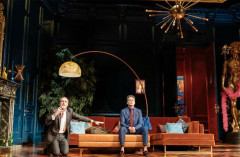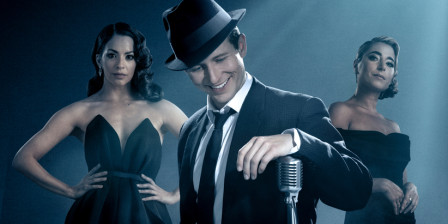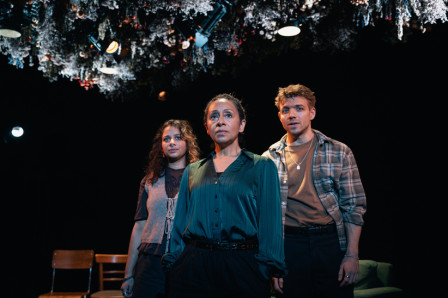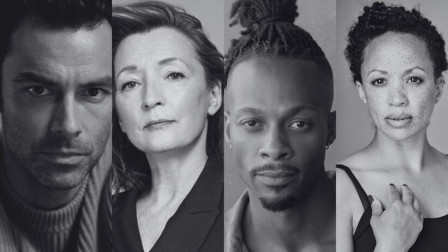Review: TARTUFFE at The Lyttelton, National Theatre
 Molière’s TARTUFFE - that perennially revisited masterpiece of wit, seduction and deception - hits the National Theatre’s Lyttelton stage this week, in what they’ve described as a ‘ferocious new version’ by John Donnelly.
Molière’s TARTUFFE - that perennially revisited masterpiece of wit, seduction and deception - hits the National Theatre’s Lyttelton stage this week, in what they’ve described as a ‘ferocious new version’ by John Donnelly.
Ferocious is probably the right description with its caustic modernist cultural references and pointed jabs at self-made men who create feckless off-spring then chastise them for being useless. The piece (for it is more of an adaptation which has used Molière’s original as a template) is also littered throughout, with thinly-veiled Brexit references in the form of societal injustice, abuse of power and general dishonesty.
At the centre of the play’s mischief and mayhem, is the title character played in this production by Denis O’Hare as a murmuring pseudo-mystic-come-mental-
Rob Jones’ lavish contemporary set, with its deep blues, oranges and reds is an exercise in subdued gaudiness - a nod at one of those international boutique hotels where bleak whites have been eschewed in favour of modern colours adorned with kitsch pseudo-artworks - like the huge golden copy of Michelangelo’s David (which whilst in a corner, still manages to occupy a quarter of the stage with its dominating presence).
As each family member tussles with the difficulties of trying to make father see sense, (whilst not wishing to hurt his feelings or antagonise him to the point of banishment), things boil over and battle lines are drawn. Most notable are the scenes where Oregon’s long-suffering second wife Elmire, played with a seemingly impossible lascivious prudishness by Olivia Williams, gets the best of some sharp retorts and carries the stage well. Another notable win on the night, was Kathy Kiera Clarke’s cannily observed housekeeper Dorine who has the measure of Tartuffe from the outset and in one especially delicious scene parries each sly, knowing and physically suggestive remark he casts at her. It spoke down the ages of how women have maintained dignity and self-respect in the face of enduring male societal power, physical dominance and complacent entitlement. On a night of mixed fortunes, it was one of the few moments this reviewer found himself overcome by a desire to let out a cheer from the stalls.
Latest News

 London Theatre Shows To Watch This February Half Term - The 2026 Edition.
3 February 2026 at 11:01
London Theatre Shows To Watch This February Half Term - The 2026 Edition.
3 February 2026 at 11:01

 Joel Harper Jackson to play Sinatra in SINATRA THE MUSICAL
3 February 2026 at 10:13
Joel Harper Jackson to play Sinatra in SINATRA THE MUSICAL
3 February 2026 at 10:13

 Review: MAGGOTS at Bush Theatre
3 February 2026 at 09:40
Review: MAGGOTS at Bush Theatre
3 February 2026 at 09:40

 Full cast announced for LES LIAISONS DANGEREUSES at National Theatre
2 February 2026 at 17:14
Full cast announced for LES LIAISONS DANGEREUSES at National Theatre
2 February 2026 at 17:14